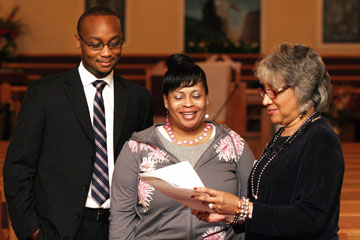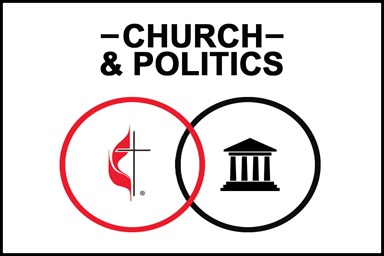The Rev. Bobby Baker, pastor of Divine Faith Baptist Church, was one of the first pastors to recognize with all its health disparities, Memphis was overlooking one of its greatest assets: the faith community.
As director of Methodist Le Bonheur Healthcare's Center for Excellence in Faith and Health, Baker manages an ever-growing network of congregations who have signed a covenant with the large health system.
The Center of Excellence in Faith and Health stands as a visible reminder that faith and health work hand-in-hand.
The $2.5 million, 16,000-square-foot center located at Methodist University Hospital on Union Avenue is a beautiful oasis. It includes a family-care center, a library, consultation space for families and physicians, and a state-of-the art training and teleconferencing studio.
A core group of faith leaders developed the covenant after many months of working together at one table.
"We didn't come to them with a prescription of how we were going to do it. We sat down and listened to them," Baker said. "This network is organically Memphis; it came out of the brains and hearts of Memphis pastors."
Patients in the network have been recruited by their pastors and have signed a card giving permission for the hospital to notify their congregation if they are admitted. However, individuals have the option to notify or not notify their church on each admission.
Pastors appoint liaisons to work with health-care "navigators." Navigators are hospital staff assigned to the churches to provide educational seminars aimed toward preventative care and inform congregants of health benefits open to them.
"Liaisons are volunteers from the congregation. They don't have to be clinical. All that is necessary is ... a passion for this kind of ministry," said Baker. They are trained by the hospital, understand privacy issues and must be willing to keep records. Quarterly training is also offered for the liaisons.
United Methodist roots

"God wants us to be earthly fit," says the Rev. Brandon Blake (left), pastor of Mt. Zion Taska Baptist Church in Memphis, Tenn. Blake looks over assessment forms for a health screening with Lisa Todd (center) and Carole Y. Dickens.
Providing quality health care to everyone is in the hospital's DNA, Baker said. John Sherard, a United Methodist plantation owner who came to visit his pastor in the charity ward of the hospital in 1918, founded the hospital.
"He wanted people who need health care but might not have means to afford it to have quality health care," Baker said.
Gary Shorb, CEO of the hospital system, is an active United Methodist. The United Methodist annual (regional) conferences of Memphis, Mississippi and Arkansas own the hospital. Baker said Shorb's leadership "allows the rest of us to live out the mission and identity of the hospital.
"Pastors and congregations we have reached out to have been generous with their time and knowledge and have allowed us to accomplish this," Baker said.
The liaisons formed a council that replaced pastors as the steering committee. The liaisons vet any program offered by the hospital to decide if it is right for their community.
"It changes the way congregations view themselves," Baker said. "It is not Methodist (Hospital) coming in and doing it for them. They are doing it for themselves."
The Rev. Brandon Blake, pastor of Mount Zion Taska Missionary Baptist Church, said it helps the people in the pews to hear the message that God wants the whole person to be healthy.
More about the Center of Excellence in Faith and Health
"God wants us to be earthly fit," he said.
Reaching out to the community and expanding health care beyond the walls of the hospitals and churches is the ultimate goal, Baker said.
Anyone can benefit from the services of the Congregational Health Network, he said. Micro-loans and seed money is available for trusted community-based groups. It also does not mean they have to choose Methodist as their health-care provider.
"We know when our members are not in the hospital, they are in the congregations," Baker said. "If we want to be in their lives before they get sick, before they develop a debilitating disease, the place to find them is in congregations."
*Gilbert is a multimedia reporter for the young adult content team at United Methodist Communications, Nashville, Tenn.
News media contact: Kathy L. Gilbert, Nashville, Tenn., (615) 742-5470 or [email protected].
Like what you're reading? Support the ministry of UM News! Your support ensures the latest denominational news, dynamic stories and informative articles will continue to connect our global community. Make a tax-deductible donation at ResourceUMC.org/GiveUMCom.




